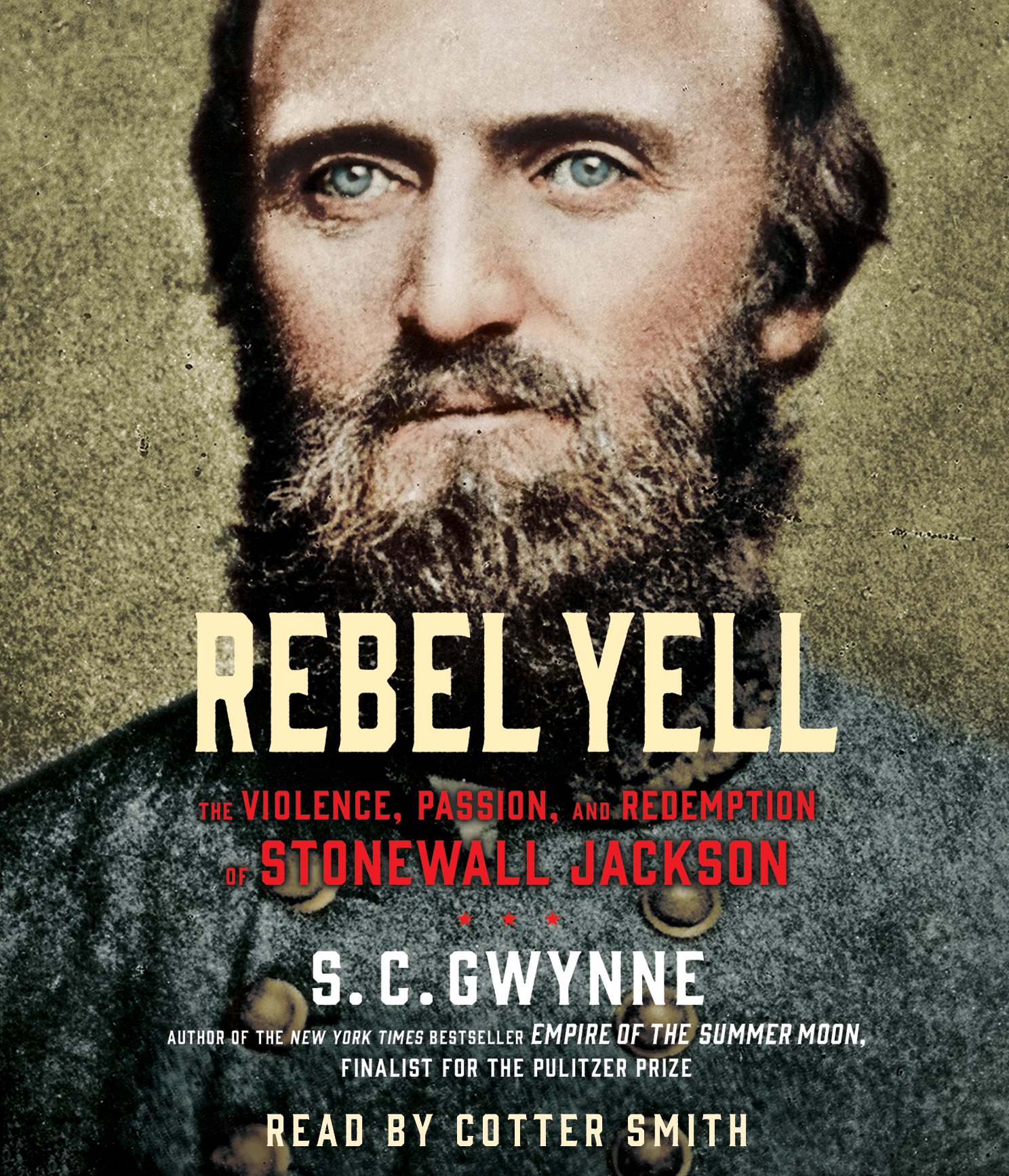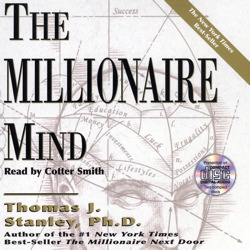Rebel Yell
The Violence, Passion and Redemption of Stonewall Jackson
By S. C. Gwynne
Read by Cotter Smith
Table of Contents
About The Book
Finalist for the National Book Critics Circle Award, the epic New York Times bestselling account of how Civil War general Thomas “Stonewall” Jackson became a great and tragic national hero.
Stonewall Jackson has long been a figure of legend and romance. As much as any person in the Confederate pantheon—even Robert E. Lee—he embodies the romantic Southern notion of the virtuous lost cause. Jackson is also considered, without argument, one of our country’s greatest military figures. In April 1862, however, he was merely another Confederate general in an army fighting what seemed to be a losing cause. But by June he had engineered perhaps the greatest military campaign in American history and was one of the most famous men in the Western world. Jackson’s strategic innovations shattered the conventional wisdom of how war was waged; he was so far ahead of his time that his techniques would be studied generations into the future.
In his “magnificent Rebel Yell…S.C. Gwynne brings Jackson ferociously to life” (New York Newsday) in a swiftly vivid narrative that is rich with battle lore, biographical detail, and intense conflict among historical figures. Gwynne delves deep into Jackson’s private life and traces Jackson’s brilliant twenty-four-month career in the Civil War, the period that encompasses his rise from obscurity to fame and legend; his stunning effect on the course of the war itself; and his tragic death, which caused both North and South to grieve the loss of a remarkable American hero.
Stonewall Jackson has long been a figure of legend and romance. As much as any person in the Confederate pantheon—even Robert E. Lee—he embodies the romantic Southern notion of the virtuous lost cause. Jackson is also considered, without argument, one of our country’s greatest military figures. In April 1862, however, he was merely another Confederate general in an army fighting what seemed to be a losing cause. But by June he had engineered perhaps the greatest military campaign in American history and was one of the most famous men in the Western world. Jackson’s strategic innovations shattered the conventional wisdom of how war was waged; he was so far ahead of his time that his techniques would be studied generations into the future.
In his “magnificent Rebel Yell…S.C. Gwynne brings Jackson ferociously to life” (New York Newsday) in a swiftly vivid narrative that is rich with battle lore, biographical detail, and intense conflict among historical figures. Gwynne delves deep into Jackson’s private life and traces Jackson’s brilliant twenty-four-month career in the Civil War, the period that encompasses his rise from obscurity to fame and legend; his stunning effect on the course of the war itself; and his tragic death, which caused both North and South to grieve the loss of a remarkable American hero.
Reading Group Guide
Questions for Discussion
1. Why does S.C. Gwynne consider Stonewall Jackson one of the most compelling characters of the Civil War
2. How did Jackson, an unpopular and highly eccentric college physics professor, become (in the space of fourteen months) the most famous military figure in the western world?
3. Why do you think Gwynne chose the title Rebel Yell
4. Jackson’s Valley Campaign shows how often victory or defeat hangs on the thread of chance. How did small decisions greatly impact the outcome?
5. Gwynne is not afraid to show the different sides of Jackson—a contradictory figure, a man who rode his troops almost as hard as his horse, Little Sorrel, and was responsible for the deaths of thousands of soldiers, but was in his private moments a loving husband and devoted Christian. Discuss Gwynne’s portrayal of the contradictions within his character.
6. How do Jackson’s personal views on slavery relate to his actions as a general?
7. Stonewall Jackson’s war-making strategies have merited generations of study. What in his strategies and leadership is significant today?
8. A review of Rebel Yell noted that “praying soldiers were often socially shunned and professionally unrewarded.” How did Jackson’s religious convictions imbue his leadership? How did his faith differentiate him?
9. What do you think attracted Gwynne to Jackson as a subject? He seems to occupy a much smaller place in the minds of Americans than other Civil War figures like Jefferson Davis or Robert E. Lee. Was Rebel Yell an attempt to correct that?
10. What surprised you most about Stonewall Jackson?
11. Do you consider Jackson an American hero? Why or why not? Did reading Rebel Yell change your opinion? How?
1. Why does S.C. Gwynne consider Stonewall Jackson one of the most compelling characters of the Civil War
2. How did Jackson, an unpopular and highly eccentric college physics professor, become (in the space of fourteen months) the most famous military figure in the western world?
3. Why do you think Gwynne chose the title Rebel Yell
4. Jackson’s Valley Campaign shows how often victory or defeat hangs on the thread of chance. How did small decisions greatly impact the outcome?
5. Gwynne is not afraid to show the different sides of Jackson—a contradictory figure, a man who rode his troops almost as hard as his horse, Little Sorrel, and was responsible for the deaths of thousands of soldiers, but was in his private moments a loving husband and devoted Christian. Discuss Gwynne’s portrayal of the contradictions within his character.
6. How do Jackson’s personal views on slavery relate to his actions as a general?
7. Stonewall Jackson’s war-making strategies have merited generations of study. What in his strategies and leadership is significant today?
8. A review of Rebel Yell noted that “praying soldiers were often socially shunned and professionally unrewarded.” How did Jackson’s religious convictions imbue his leadership? How did his faith differentiate him?
9. What do you think attracted Gwynne to Jackson as a subject? He seems to occupy a much smaller place in the minds of Americans than other Civil War figures like Jefferson Davis or Robert E. Lee. Was Rebel Yell an attempt to correct that?
10. What surprised you most about Stonewall Jackson?
11. Do you consider Jackson an American hero? Why or why not? Did reading Rebel Yell change your opinion? How?
About The Reader
Cotter Smith
Product Details
- Publisher: Simon & Schuster Audio (September 30, 2014)
- Length: 21 disks
- Runtime: 26 hours
- ISBN13: 9781442367357
Resources and Downloads
High Resolution Images
- Book Cover Image (jpg): Rebel Yell Unabridged Compact Disk 9781442367357(2.1 MB)
- Author Photo (jpg): S. C. Gwynne Photograph by Kenny Braun(0.1 MB)
Any use of an author photo must include its respective photo credit





















